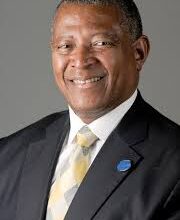Selma Schol Board receives honor
Published 9:27 pm Monday, August 19, 2013
The Selma City School Board is one of 63 of the 135 Alabama school systems to receive the 2013 Presidents Award from the Alabama Association of School Boards, and only one of four schools in District 2 to receive the recognition.
Each year AASB honors school boards that have at least 60 percent of their members attend AASB conferences and training events. The 2013 award is based on the 2012-2013 academy year that ended June 30.
Denise Berkhalter, public relations director for AASB said the goal of AASB is to encourage school boards to participate in training throughout the year and encourage individual board members to improve and enhance their governing skills so that they can become better leaders who are in a position to improve student achievement in their school system.
“The idea is if you are a better trained board member, it will improve your governing skills and leadership skills,” Berkhalter said.
The award, she noted is not based on merit. It is based solely on the attendance of the AASB training events. She added this year will actually be the last year school boards will receive the President’s Award, as state law now requires the training of all board members.
“Because state law now requires training we’re hoping that all boards will qualify to be on this list,” she said.
The Selma City School Board will receive a plaque and be recognized in front of their peers and other school boards in their AASB district at Selma High School Aug. 29. The districts are divided into nine geographical areas. Of the 13 schools in District 2, Selma, Butler County, Lowndes County and Perry County will be recognized.
Selma City Schools Superintendent Gerald Shirley was pleased to announce the board’s recognition at a recent Selma City School Board meeting.
“This award demonstrates that the Selma City School System has conscientious school board members as it relates to staying abreast of school board policy and procedure,” Shirley said.
Berkhalter added the importance for school board training cannot be underestimated,
“School board members are in this realm because they’re public servants, therefore there’s no built in avenue for professional development like there is if you’re a teacher or administrator,” she said. “These are normal, everyday people coming from all sorts of backgrounds and different levels of understanding of what public education governance is, so they need quality, professional development.”
The fact that some of these board members are paying out of their own pocket to attend this training and taking off from their regular, “real” job to participate in this training, Berkhaulter said, is just another reason why it should be commended and recognized.





